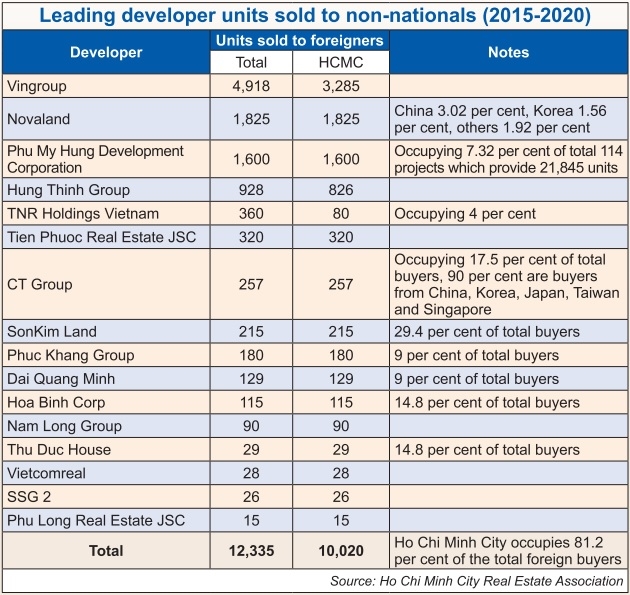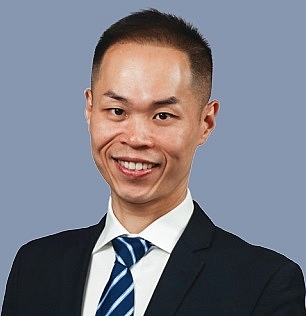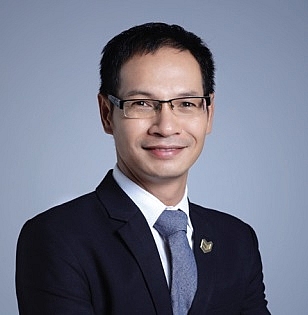Developers work around foreign cap
 |
According to the Law on Housing 2014, foreign organisation and individual ownership of units in an apartment building may not exceed 30 per cent of total units in one apartment building.
In the event of an area with geographical boundary equivalent to ward level with many apartment buildings for sale or lease purchase, those organisations and individuals may own no more than 30 per cent of the total units of each apartment building, and not more than 30 per cent of the total units of all the apartments.
Some projects, however, have used up the limitation such as Gateway Thao Dien, Nassim, and Thao Dien Pearl. In response, the project developers are persuading their overseas buyers to a long-lease term of 50 years instead.
According to Le Hoang Chau, chairman of Ho Chi Minh City Real Estate Association (HoREA), in several projects that that reached the ownership rate ceiling, non-nationals are being offered two options for short-term rent or long-term home lease. “In reality, there is not much difference between being in or out of the 30 per cent limitation. Foreign buyers who are consistent in wanting a property in their target projects will choose the long-lease term,” Chau said.
While current regulations include the 30 per cent cap for foreign ownership in Vietnam, no such limitation is applied for long leasing.
Some nations are currently tightening foreign ownership policy to avoid speculation, like South Korea, or trying to limit the number of homes being bought by foreigners, causing prices to soar and making it difficult for local middle- and low-income people to acquire accommodation, like in Australia.
Chau stressed that housing needs and housing ownership are different. “Most of the foreigners living in Vietnam would choose to rent a house instead of buying. This is because if they stay in Vietnam for more than 180 days each year will have to pay personal income tax. They will not buy fixed assets and then waste half a year of not using them,” Chau said.
Keeping the limitation of 30 per cent does not affect the target of attracting foreign investment while ensuring the advantage for Vietnamese in the luxury segment, he added.
According to unofficial figures, more than 320,000 foreigners live and work in Vietnam, mainly in Hanoi and Ho Chi Minh City.
Ho Chi Minh City has recorded the highest percentage of foreign buyers nationwide. According to HoREA, 17 leading real estate groups and corporations in Vietnam have sold more than 12,000 homes to foreign individuals and enterprises during the past five years.
The majority of overseas buyers come from China, South Korea, Taiwan, Hong Kong, and Singapore, while leasers are mainly from Europe, the US, Australia, and Japan. Nationwide, the HoREA predicts that around 16,000 units have been sold to non-Vietnamese buyers during this time.
Among the 17 real estate groups, 85 per cent of the total units belong to five leading ones with more than 10,000 units. Of those, Vingroup occupies around 40 per cent, with more than 5,000 units sold to foreigners.
Figures from the Ministry of Construction said that more than 4 million units were built in Vietnam in the last 10 years.
Under Decree No.99/2015/ND-CP to guide to the implementation of Law on Land 2013, the ministries of defence, public security, and construction work with local authorities to set up a list of projects eligible for foreign buyers. Developers must propose those projects and meet the required conditions so as to not harm national security.
However, many localities have not released their list of eligible projects for them, causing a prolonged process in handing out red books for buyer certification.
Only localities such as Hanoi, Ho Chi Minh City, Binh Duong, Khanh Hoa, Danang, and Ba Ria-Vung Tau have offered up lists so far.
“This slow process is confusing and brings risks to buyers if they bought a project but has not had it permitted yet,” said Nguyen Van Minh, a consultant in Ho Chi Minh City’s District 4.
| Kenny Law - Associate director, International Residential Sales Savills Hong Kong
The size of Vietnam means there are plenty of investment opportunities, as long as you do careful research on where you want to invest. The safest bets are Hanoi and Ho Chi Minh City, but there are also secondary markets such as the tourist hub of Danang, the resort town of Nha Trang, and the suburban expanse of Binh Duong. Some of the most up-and-coming areas can be found in the heart of that city. A new metro line will be operational in 2022. Any development within 1km of the line is expected to benefit from an annual capital appreciation of 10 per cent, which has been the case around major public transport corridors in many other markets. It’s also worth looking across the Saigon River at Thu Thiem, slated to become Ho Chi Minh City’s second central business district. With a view over District 1’s fast-growing skyline, Thu Thiem’s pastoral landscape will soon give way to facilities for trade, public services, culture, education, and of course housing. Hoang Nguyen - R&D director, DKRA Vietnam
Vietnamese law currently stipulates that foreign individuals and organisations are allowed to only buy houses in Vietnam but for hospitality property, there is no specific provision. Although not many, there is an increasing trend of foreigners buying houses in Vietnam (mainly in Grade A and luxury apartment projects). Meanwhile, Southeast Asian countries such as Thailand, Indonesia, and Malaysia have regulations for foreigners to buy hospitality property. Despite the current challenges, the potential of resort real estate in Vietnam in the long term is great. The diversified source of buyers includes individuals and organisations including domestic Vietnamese, overseas Vietnamese, and foreigners who are also essential and beneficial for investors and the real estate sector in general. |
What the stars mean:
★ Poor ★ ★ Promising ★★★ Good ★★★★ Very good ★★★★★ Exceptional
 Tag:
Tag:
Related Contents
Latest News
More News
- Foreign leaders extend congratulations to Party General Secretary To Lam (January 25, 2026 | 10:01)
- 14th National Party Congress wraps up with success (January 25, 2026 | 09:49)
- Congratulations from VFF Central Committee's int’l partners to 14th National Party Congress (January 25, 2026 | 09:46)
- 14th Party Central Committee unanimously elects To Lam as General Secretary (January 23, 2026 | 16:22)
- Worldwide congratulations underscore confidence in Vietnam’s 14th Party Congress (January 23, 2026 | 09:02)
- Political parties, organisations, int’l friends send congratulations to 14th National Party Congress (January 22, 2026 | 09:33)
- Press release on second working day of 14th National Party Congress (January 22, 2026 | 09:19)
- 14th National Party Congress: Japanese media highlight Vietnam’s growth targets (January 21, 2026 | 09:46)
- 14th National Party Congress: Driving force for Vietnam to continue renewal, innovation, breakthroughs (January 21, 2026 | 09:42)
- Vietnam remains spiritual support for progressive forces: Colombian party leader (January 21, 2026 | 08:00)
























 Mobile Version
Mobile Version